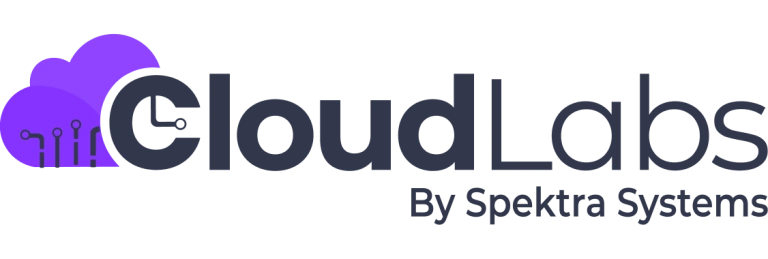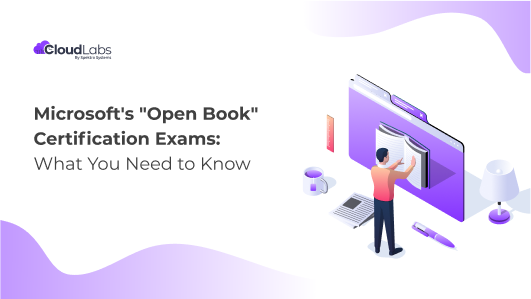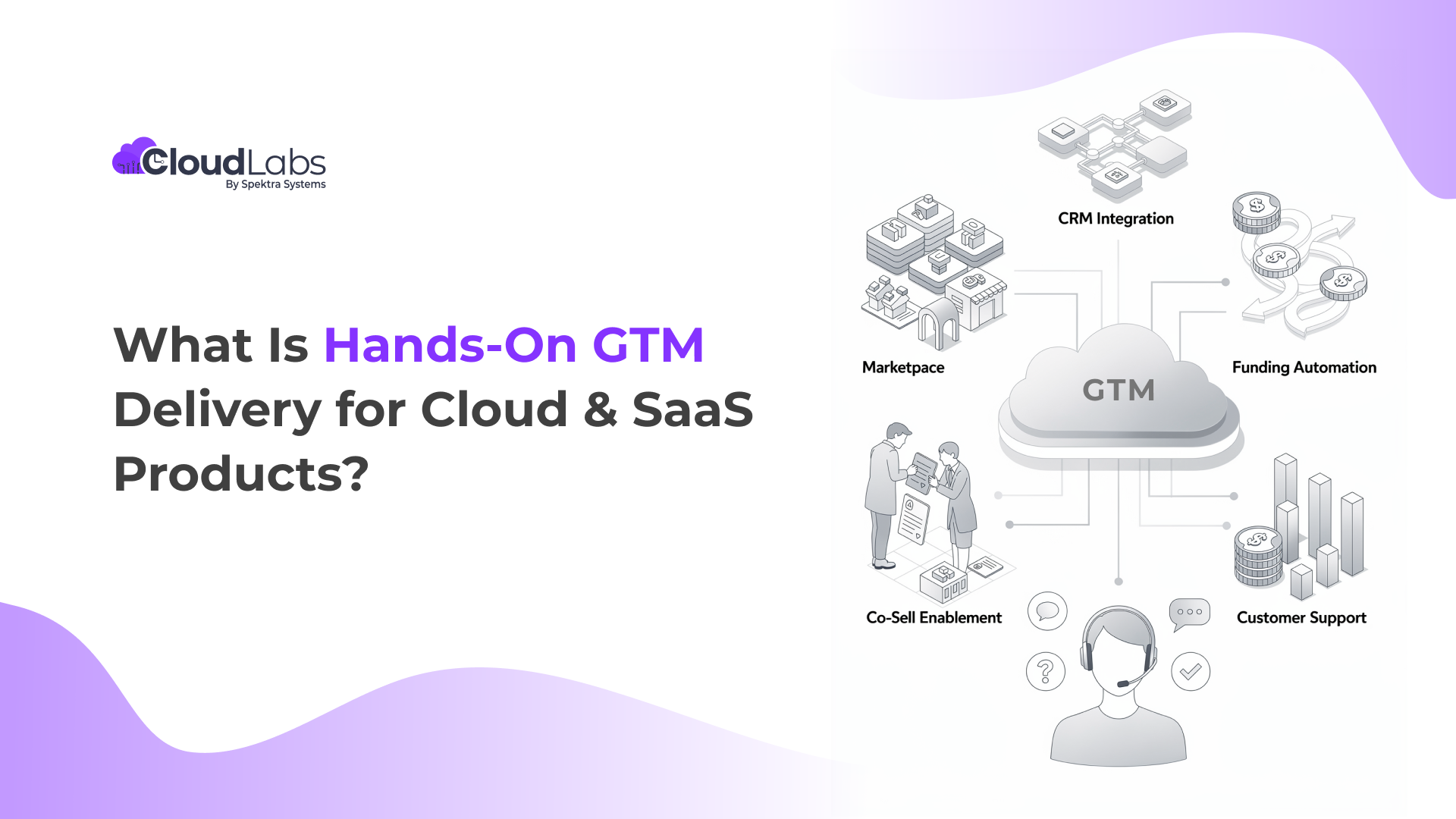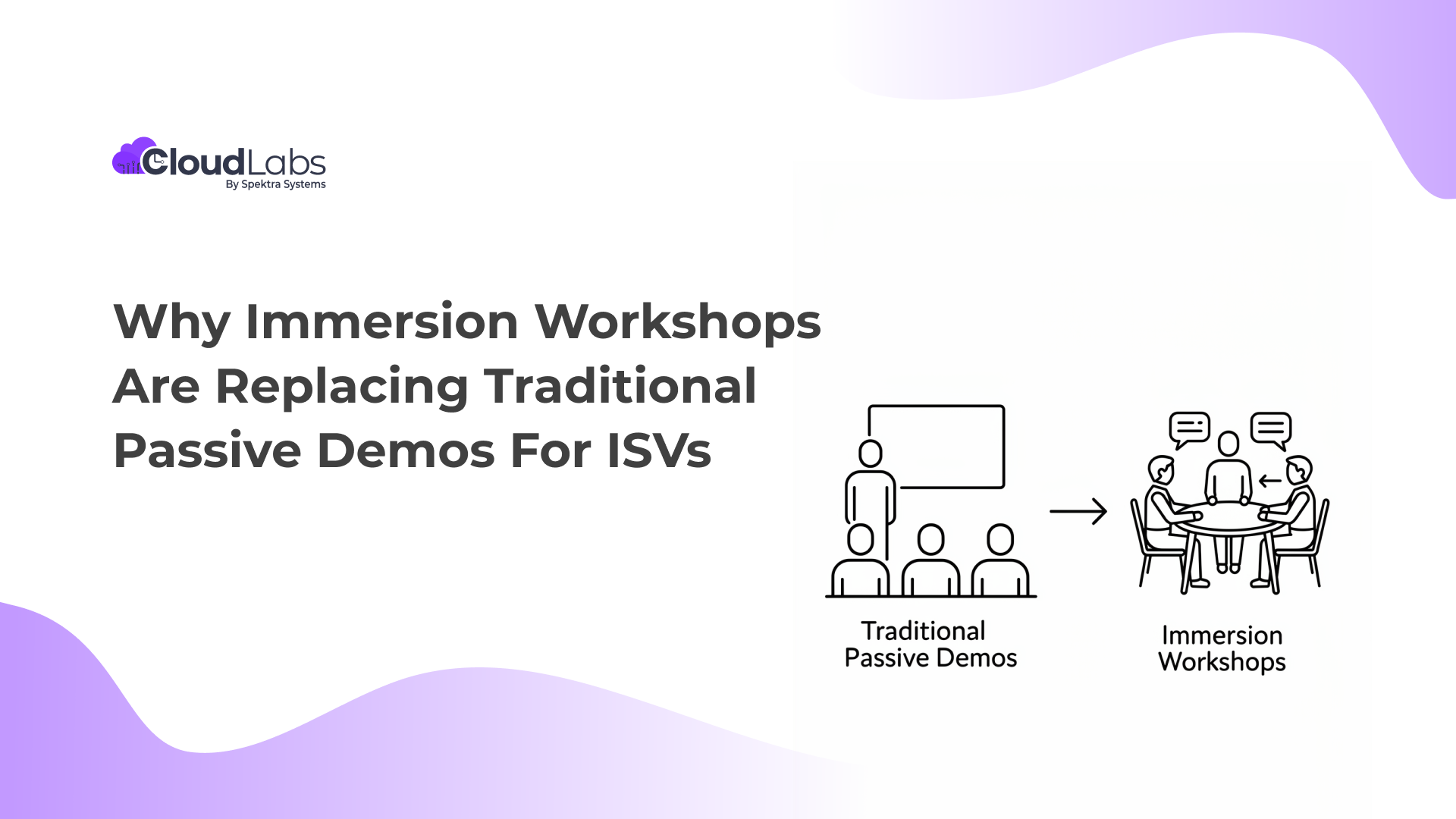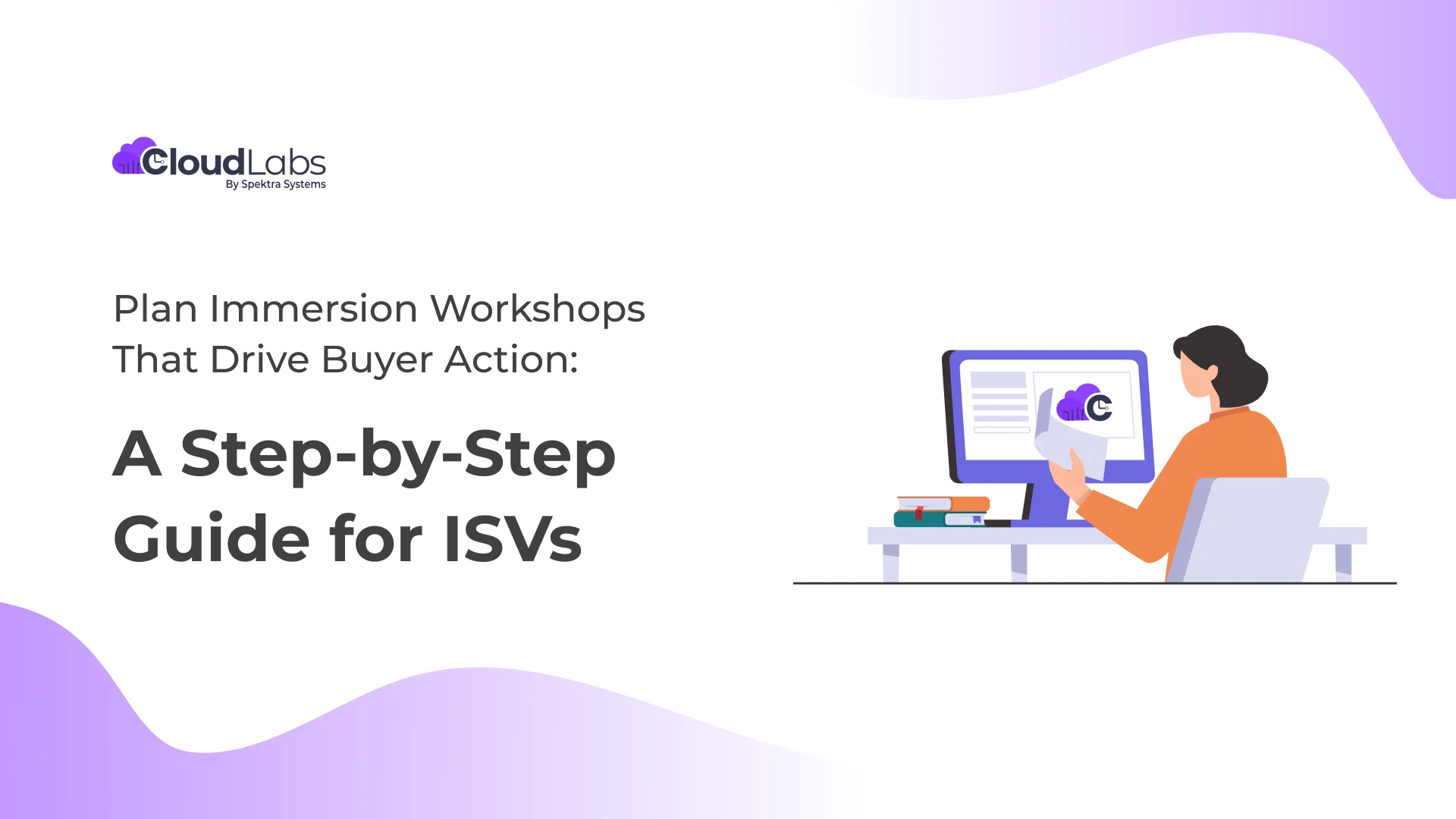Introduction
In a surprising move, Microsoft has recently introduced a major change to its certification exams, giving candidates access to Microsoft Learn, its learning platform, during the examination process. This development has ignited discussions and raised questions about the impact it will have on the certification landscape. In this article, we’ll delve into the details of this transformation and explore the various opinions surrounding it.
Understanding the Change
Microsoft’s Announcement – On August 22, 2023, Microsoft made an announcement that sent ripples through the certification community. They revealed candidates taking exams for role-based certifications provided by Microsoft, encompassing positions like Azure Administrator, Developer, Solutions Architect, and DevOps Engineer, as well as Microsoft 365 Modern Desktop Administrator and Enterprise Administrator, will have the opportunity to participate in open book exams.
Candidates will have access to the Microsoft Learn portal during exams across different competency levels, such as Associate, Expert, and Specialty. This resource will be available for all role-based and specialty exams, in multiple languages, and is set to be fully implemented by mid-September 2023.
What Does “Open Book” Exam Mean?
Traditionally, Microsoft exams strictly prohibited internet access, posing a challenge for candidates who struggled with memorization. With this new approach, candidates can access Microsoft Learn, a comprehensive resource, during their exams. However, unrestricted internet access remains off-limits.
Mixed Reactions
The introduction of “open book” exams has triggered a wide range of reactions within the community. While some express concerns about potential devaluation of certifications, others applaud Microsoft for fostering inclusivity. It’s important to note that Microsoft Learn has always been available as a free resource for professionals to prepare for exams.
Pros and Cons of “Open Book” Exams
The Benefits
-
Access to Documentation Reflects Real-World Scenarios:
This shift acknowledges that in the real world, professionals often refer to documentation when implementing cloud systems. It aligns the exam environment more closely with practical, on-the-job scenarios.
-
Promotes Tech Education Equity:
Making documentation available during exams levels the playing field for all candidates, including neurodiverse learners. It ensures that everyone has equal access to knowledge, reducing the need for pure memorization.
-
Encourages Continuous Learning:
Candidates can now engage with Microsoft Learn to search for information during the exam, fostering a culture of continuous learning and adaptability.
Challenges to Consider
-
Time Constraint:
Despite access to documentation, the exam timer continues to run, which poses a time management challenge. Striking a balance between researching and answering questions efficiently within the allotted time becomes crucial.
-
Over-Reliance on Microsoft Resources:
While Microsoft Learn is a valuable resource, it should complement, not replace, hands-on experience and other preparation methods. Relying too heavily on documentation during exams may lead to superficial understanding.
-
Exclusion of Fundamentals Level:
Access to Microsoft Learn during exams is not extended to fundamental-level certifications, raising questions about equity. Candidates at this level do not enjoy the same level of support during their exams.
Below you can see a couple of screenshots showing how the Exam Questions will look:
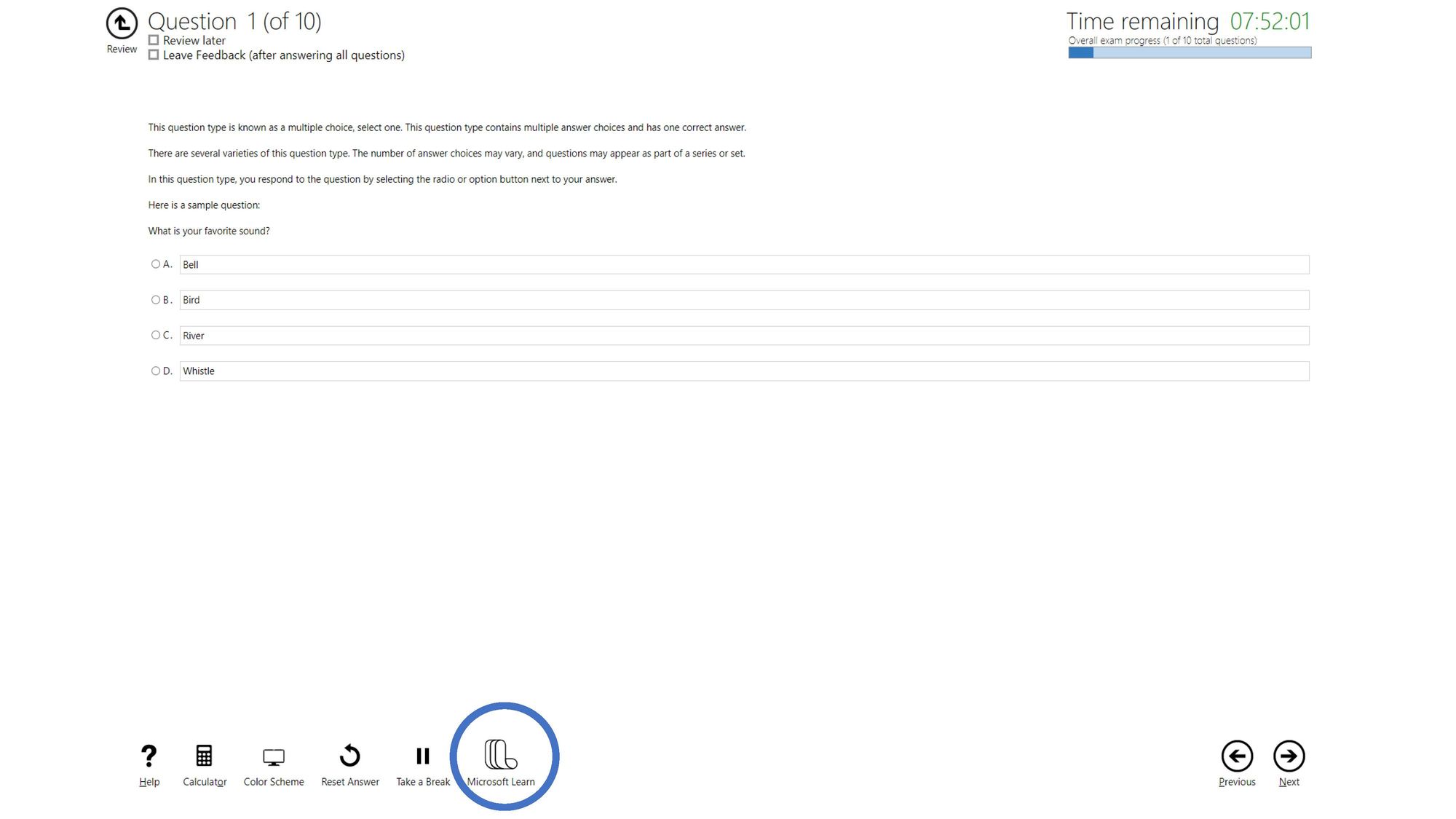
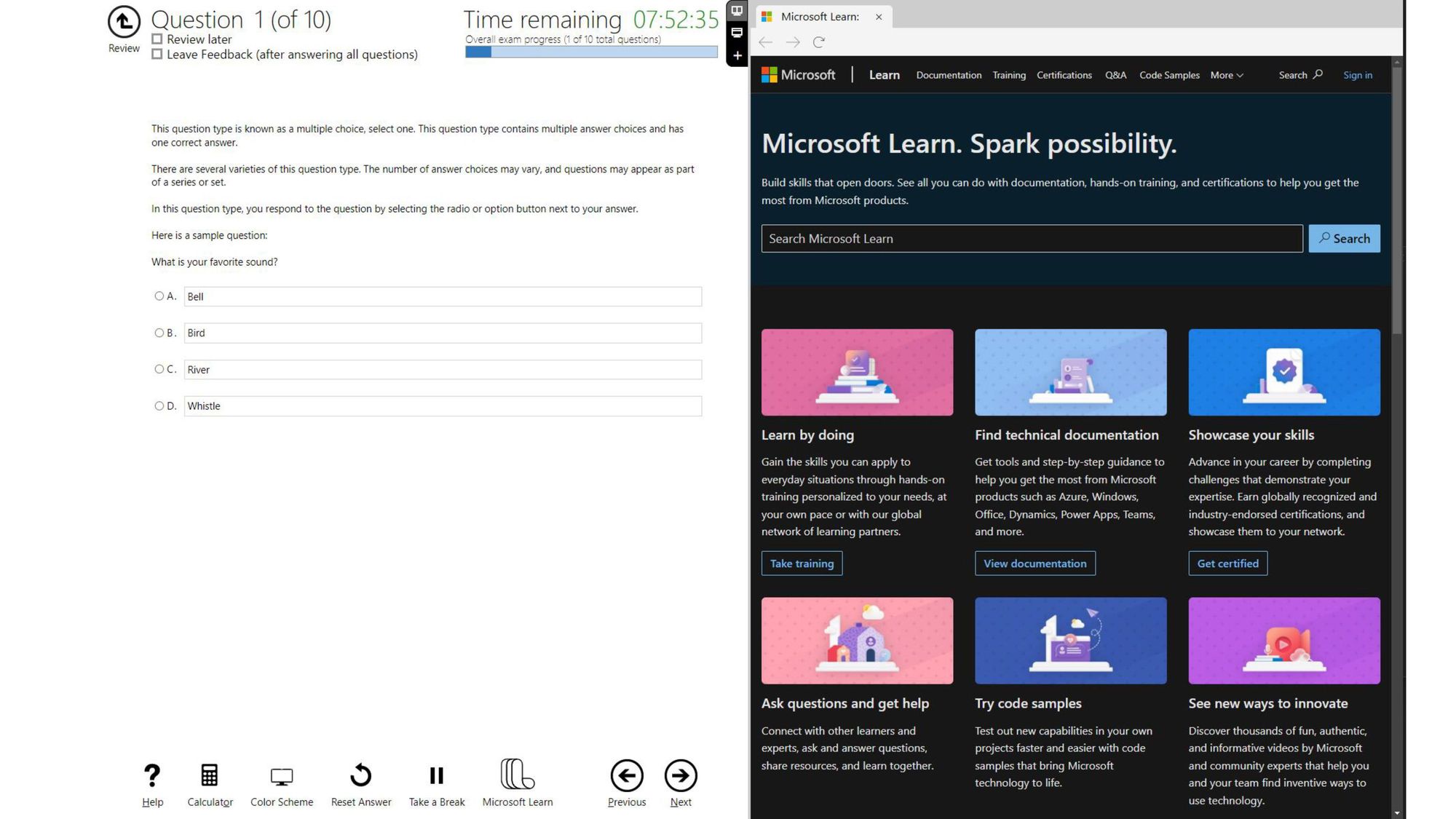
To see a full demonstration of the feature set, visit Microsoft new exam resource video.
Conclusion
In conclusion, Microsoft’s introduction of “Open Book” certification exams is a significant step towards more practical and inclusive testing. It aligns with real-world practices, promotes equity in tech education, and encourages continuous learning. However, candidates and educators should exercise caution to balance research and time management during these exams.
For educators, platforms like CloudLabs provide valuable hands-on experience that complements open-book exams. While open-book exams have their advantages, hands-on skills, and experience remain essential. Thus, CloudLabs serves as an invaluable resource for educators to ensure their students are well-rounded and fully prepared for their certification journey.
Amit Malik is the COO at Spektra Systems, known for his expertise in Microsoft Cloud and digital transformation. He drives strategic planning and operational initiatives, reshaping the cloud landscape to deliver superior business outcomes. He is a recognized thought leader and speaker on Cloud, AI, and IoT, and holds a position among the Leaders Excellence at Harvard Square.
